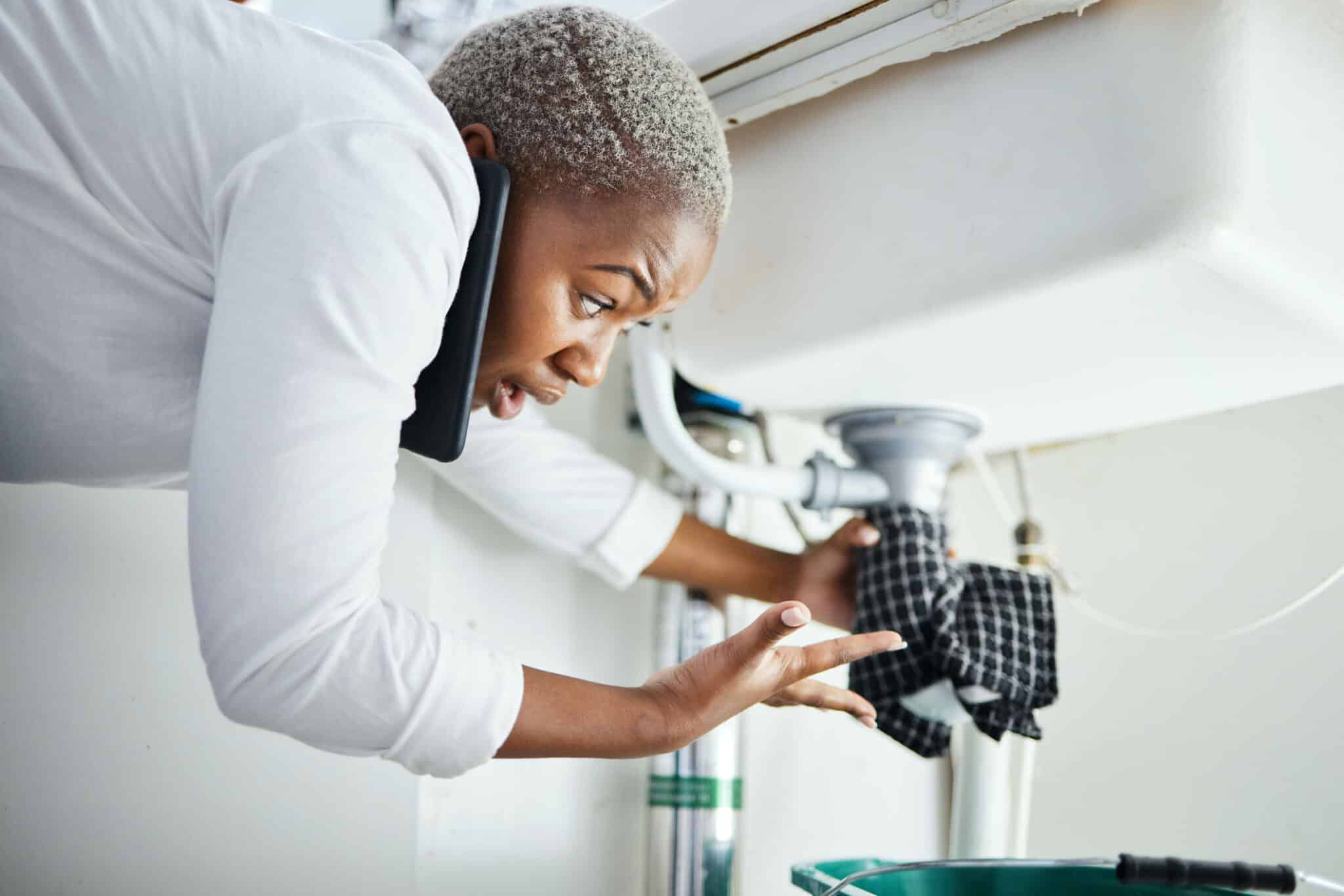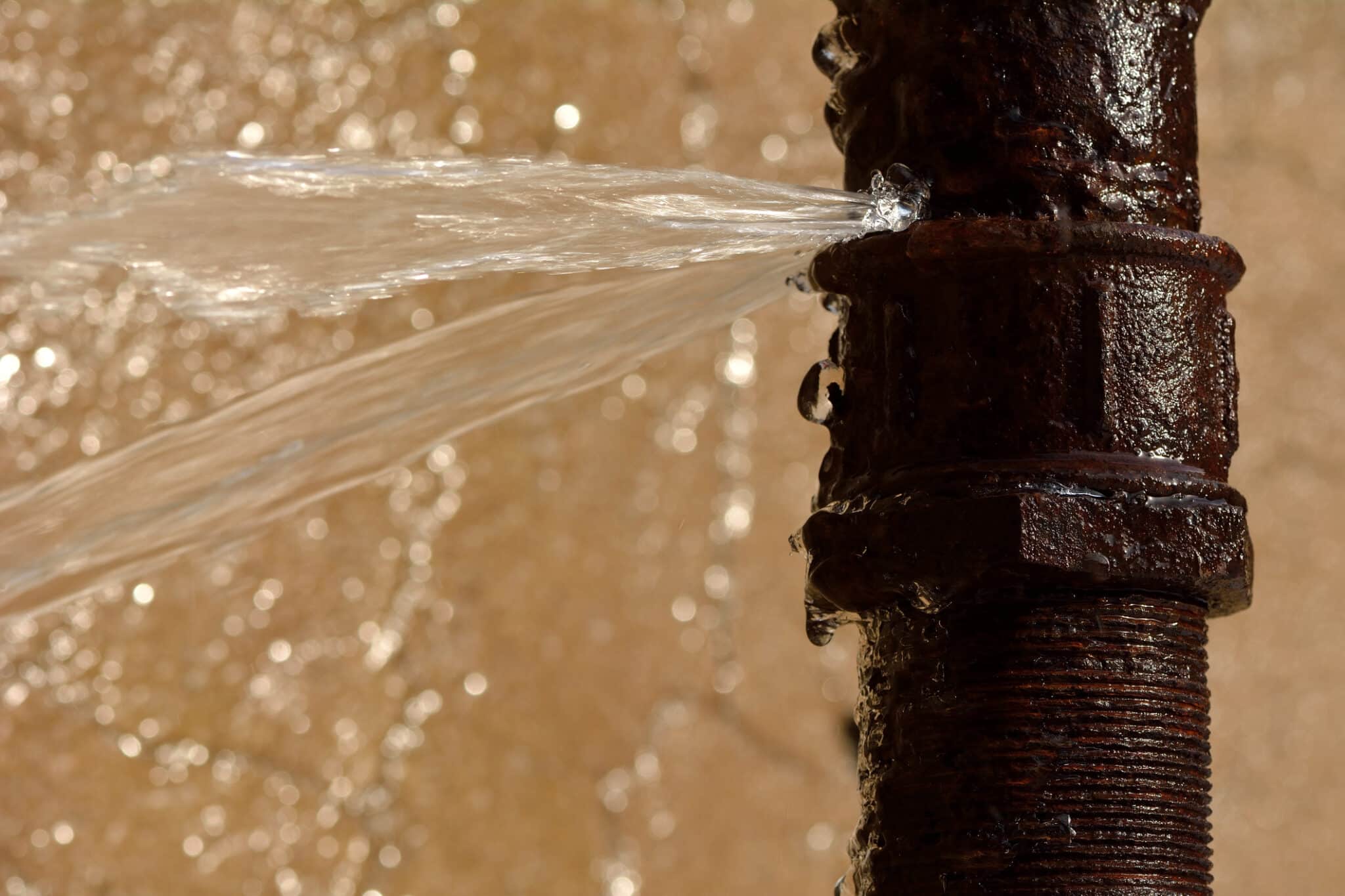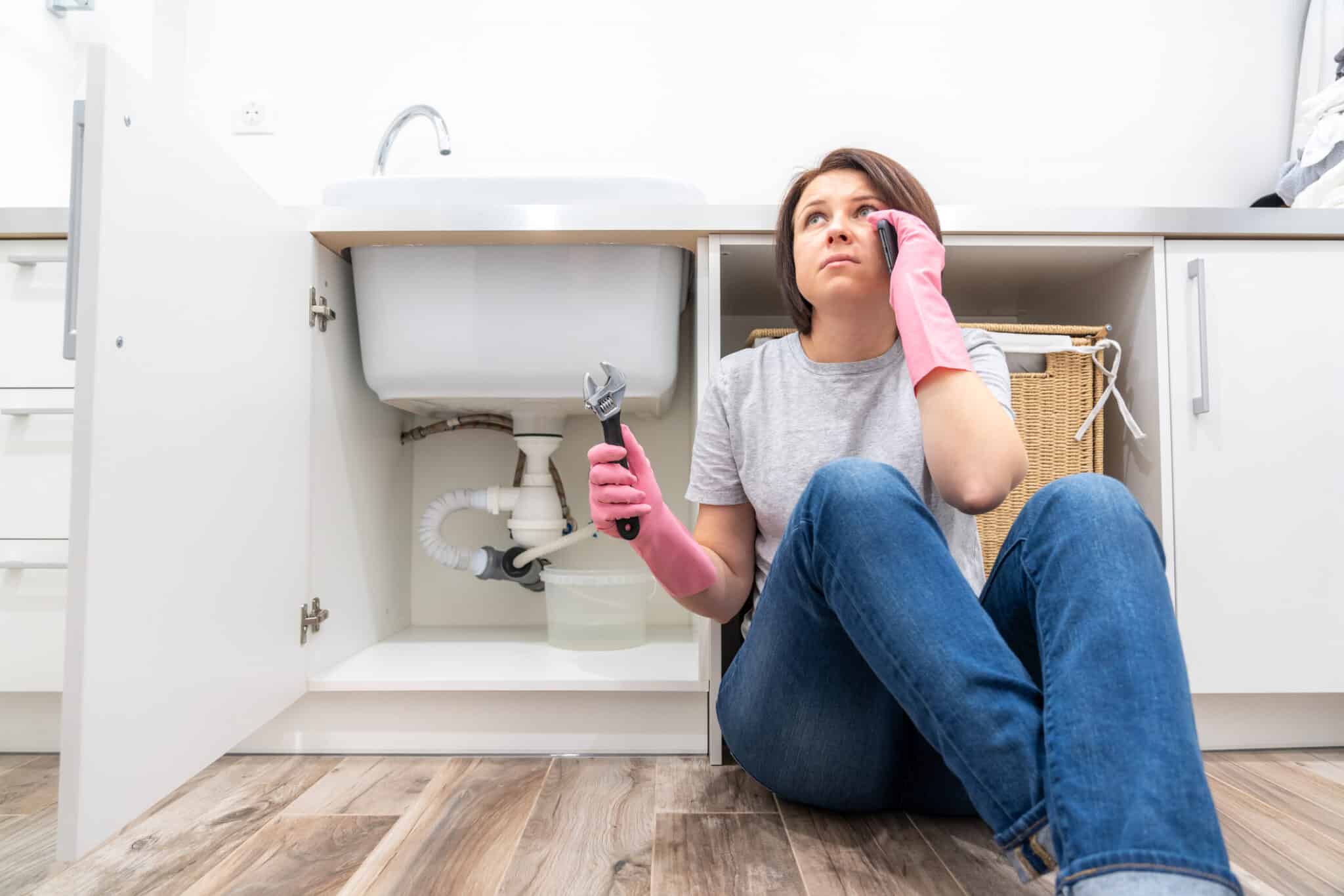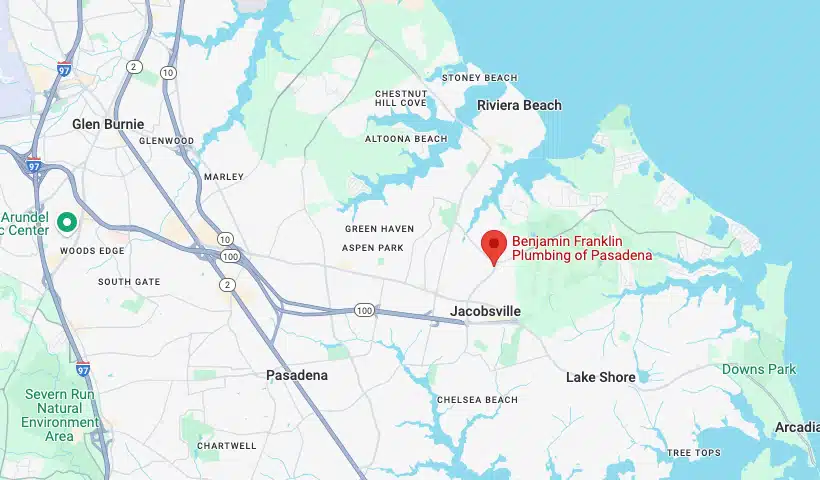Common Plumbing Problems in Older Homes and How to Fix Them

Plumbing Problems – If you live in a charming older house in Pasadena, Glen Burnie, or Hanover, MD, you know how special they can be. But let’s be honest—when it comes to plumbing problems, these homes often come with their own set of surprises.
Leaky pipes, low water pressure, and clogs can make life stressful, especially when you’re not sure where to start. In this blog, we’ll talk about the most common plumbing problems in older homes and how you can tackle them without losing that vintage vibe. Let’s dive in!
Why Older Homes Are Prone to Plumbing Problems
Older homes are built to last, but their plumbing systems often struggle to keep up with modern demands. Here’s why your charming vintage home might come with a few plumbing headaches.
Outdated Materials
Back in the day, homes were often built with materials like lead pipes and galvanized steel. These materials might have been the standard back then, but they’re no match for today’s durable and safer options.
Lead pipes are a significant health risk due to potential contamination, while galvanized steel is prone to rusting, clogging, and eventually failing. Homes that haven’t undergone significant plumbing updates in decades likely still have these materials in place, silently causing long-term problems for homeowners.
Wear and Tear Over Time
Plumbing systems have taken a significant beating over the years as they’re subjected to constant use and environmental changes. Pipes, joints, and fixtures naturally degrade over time, developing cracks, corrosion, or weak points.
Decades of water flow, fluctuating pressure, and temperature variations cause inevitable damage to older systems. The more a plumbing system ages, the more likely it is to fail, leading to leaks, bursts, or inefficiency throughout the home.
Poor Past Repairs
Older homes often have a history of quick fixes that were never meant to stand the test of time. Previous owners may have patched up problems with makeshift repairs or temporary solutions to save time or money.
These quick fixes can worsen with age, leading to recurring clogs, persistent leaks, or even major structural plumbing issues. In many cases, these “repairs” create hidden weak points that eventually require extensive work to address properly.

Common Plumbing Problems in Older Homes
Older homes have their fair share of plumbing quirks that can lead to some major headaches if left unresolved. Here are the most common issues that tend to crop up and how they impact your daily life.
Leaking or Corroded Pipes
Leaking or corroded pipes are one of the most frequent issues in older homes, and they often go unnoticed until significant damage occurs. Pipes made from outdated materials like galvanized steel or lead are more prone to corrosion and leaks as they age.
Corroded pipes can cause discolored or foul-smelling water, which may pose health risks to your family. Over time, these leaks can damage walls, floors, and ceilings, leading to costly repairs and potential mold growth if not addressed quickly.
Low Water Pressure
Low water pressure is another common frustration in older homes, especially in areas like showers and faucets. This problem is usually caused by mineral buildup inside old pipes, corrosion, or hidden leaks within the plumbing system.
Over time, deposits from hard water restrict the flow, making everyday tasks like washing dishes or taking a shower more time-consuming. Ignoring low water pressure can also be a sign of deeper issues within your plumbing system that need immediate attention.
Clogged Drains
Decades of debris, grease, and soap scum accumulation in pipes lead to frequent clogs in older homes. Sewer lines in older systems are particularly vulnerable to tree root intrusion, which blocks water flow and can cause backups.
Simple solutions like plungers or drain cleaners might provide temporary relief but rarely address the root of the issue. Left untreated, clogged drains can escalate into significant problems, including flooding and sewage leaks.
Failing Water Heaters
Older water heaters often lose efficiency over time, resulting in inconsistent hot water and increased energy bills. Aging units may struggle to keep up with household demands, especially if sediment buildup reduces their capacity.
Strange noises like popping or banging from your water heater are often signs it’s nearing the end of its lifespan. Without a replacement or upgrade, an old water heater can fail, leaving you without hot water when you need it most.
Sewer Line Issues
Older sewer lines, especially those made of clay or cast iron, are prone to cracks, collapses, and intrusions from tree roots. These issues often manifest as frequent backups, slow drains, or unpleasant sewage odors around your property.
Sewer line problems can escalate quickly and pose serious health risks if waste begins to back up into your home. Repairing or replacing damaged sewer lines can prevent these issues from becoming a full-blown plumbing emergency.
Outdated Fixtures
Fixtures in older homes, such as faucets, toilets, and showerheads, often lack the efficiency and reliability of modern models. Leaky faucets and running toilets are not only annoying but also waste a significant amount of water, driving up your utility bills.
Older fixtures may also have design flaws that make them more prone to wear and tear, requiring frequent repairs. Upgrading to modern, water-saving fixtures can significantly improve your home’s functionality and reduce long-term costs.
How to Address Plumbing Problems in Older Homes
Fixing plumbing problems in older homes doesn’t have to feel overwhelming. With the right approach and a focus on modern updates, you can resolve these issues and keep your plumbing in great shape for years to come.
Replacing Corroded or Leaking Pipes
Upgrading outdated pipes is one of the most effective ways to prevent leaks and improve water quality. Modern materials like PEX or copper are durable, resistant to corrosion, and safer for your home.
Replacing old pipes can eliminate issues like discolored water, low water pressure, and the constant worry of pipe bursts. While it’s an investment upfront, new plumbing materials provide long-term peace of mind and often boost your home’s resale value.
Improving Water Pressure
Low water pressure can often be resolved by tackling the underlying causes, such as clearing mineral buildup in pipes or fixing leaks. Cleaning or replacing faucet aerators is a quick and affordable way to restore flow.
If the problem is more severe, a plumber can inspect the system to identify and repair obstructions or replace damaged pipes. Addressing water pressure issues not only makes daily tasks more efficient but also ensures your plumbing system works smoothly.
Unclogging Drains
Persistent clogs in older homes often require professional attention to address the root cause. Plumbers can perform thorough drain cleanings using specialized tools that safely remove years of buildup.
For sewer line issues caused by tree roots, techniques like hydro jetting or trenchless repairs can clear blockages without damaging your property. These solutions offer long-term results, saving you from dealing with recurring drain problems.
Upgrading Your Water Heater
Replacing an old water heater with a modern, energy-efficient model is a smart way to improve performance and lower utility costs. Tankless water heaters, for example, provide endless hot water on demand while taking up less space.
Traditional tank models have also come a long way, with improved insulation and faster heating capabilities. A new water heater ensures consistent hot water for your household and reduces the risk of unexpected breakdowns.
Repairing or Replacing Sewer Lines
Damaged sewer lines can be repaired or replaced using advanced methods like trenchless technology, which minimizes digging and disruption to your property. For severe cases, a full replacement might be necessary to restore your system’s functionality.
Addressing sewer line issues promptly helps prevent backups, foul odors, and potential health hazards from waste exposure. Modern solutions ensure your sewer system is reliable for decades to come.

When to Call a Professional Plumber
While some plumbing issues in older homes can be tackled with simple solutions, others require the expertise of a professional. Knowing when to call in a plumber can save you time, money, and the frustration of dealing with worsening problems.
Complex Repairs
Major projects like replacing old pipes, repairing sewer lines, or upgrading outdated plumbing systems should always be handled by a professional. These jobs require specialized tools, technical knowledge, and experience to ensure they’re done safely and correctly. Attempting complex repairs on your own can lead to costly mistakes or even further damage to your home’s plumbing.
Safety Concerns
If your home still has lead pipes or other hazardous materials, it’s essential to let a professional plumber handle the removal and replacement process. Lead pipes pose significant health risks, especially for drinking water, and must be replaced with safer materials like PEX or copper. Professionals have the expertise to deal with these situations safely and in compliance with local regulations.
Recurring Issues
Some problems, like persistent clogs or leaks, are signs of deeper issues within your plumbing system. If you’re constantly dealing with the same issues despite temporary fixes, it’s time to bring in a plumber to assess the situation. A professional can identify and address the root cause, ensuring the problem doesn’t keep coming back.
Benefits of Addressing Plumbing Problems Early
Taking care of plumbing problems as soon as they arise can save you a lot of stress, money, and potential damage in the long run. Proactive maintenance and timely repairs are key to keeping your home’s plumbing system in top shape and avoiding unnecessary headaches.
Avoiding Costly Repairs
Small plumbing problems like minor leaks or clogs might seem harmless, but they can quickly escalate into bigger, more expensive issues. For example, a small leak left unchecked can lead to water damage, mold growth, and structural problems that cost thousands to repair. Addressing plumbing problems early helps prevent these costly scenarios and ensures your system is functioning properly.
Preserving Home Value
Older homes often come with unique character and charm, but plumbing problems can diminish their appeal and value. Potential buyers are wary of outdated plumbing systems or unresolved plumbing problems, as they can signal ongoing maintenance issues. Regular updates and repairs ensure your plumbing system remains efficient and reliable, keeping your home attractive and preserving its value.
Improving Water Quality and Efficiency
Fixing plumbing problems in older homes can significantly improve your home’s water quality and efficiency. Corroded pipes and outdated fixtures caused by plumbing problems can affect the taste, appearance, and safety of your water supply.
Upgrading to modern plumbing materials and water-saving fixtures eliminates many plumbing problems while providing cleaner, safer water and reducing waste. Addressing plumbing problems promptly also ensures lower utility bills and more consistent performance throughout your home.
Tired of Plumbing Problems? We’ve Got You Covered!
If plumbing problems in your Pasadena, Glen Burnie, or Hanover, MD home are keeping you up at night, let Benjamin Franklin Plumbing of Pasadena handle it! From fixing leaks to upgrading outdated systems, our expert plumbers are ready to tackle even the toughest issues.
Don’t let plumbing problems disrupt your life—contact us today and experience reliable, professional service you can count on. Your home deserves the best care!

Frequently Asked Questions (FAQ)
How can I tell if my older home has lead pipes?
Lead pipes are typically dull gray and can be easily scratched with a coin or key. If you notice discoloration in your water or suspect your home’s plumbing system might include lead, contact a professional plumber to inspect and replace them.
What’s the lifespan of older plumbing materials?
Galvanized steel pipes last around 50 years, while lead pipes can last longer but are unsafe. Copper pipes generally last 70–80 years, depending on maintenance and usage.
Are plumbing upgrades worth the cost in older homes?
Absolutely! Upgrading your plumbing system resolves common plumbing problems, improves water quality, and boosts efficiency. Modern materials and fixtures reduce the risk of future repairs and make your home more comfortable while increasing its value.
How often should I schedule plumbing inspections?
For older homes, annual plumbing inspections are a good rule of thumb. Regular inspections help identify small plumbing problems like leaks or clogs before they turn into major issues.
Can I prevent tree roots from invading my sewer lines?
Yes, with regular maintenance and professional services, you can prevent tree root invasions. Persistent sewer line plumbing problems in older homes often stem from roots seeking moisture.






